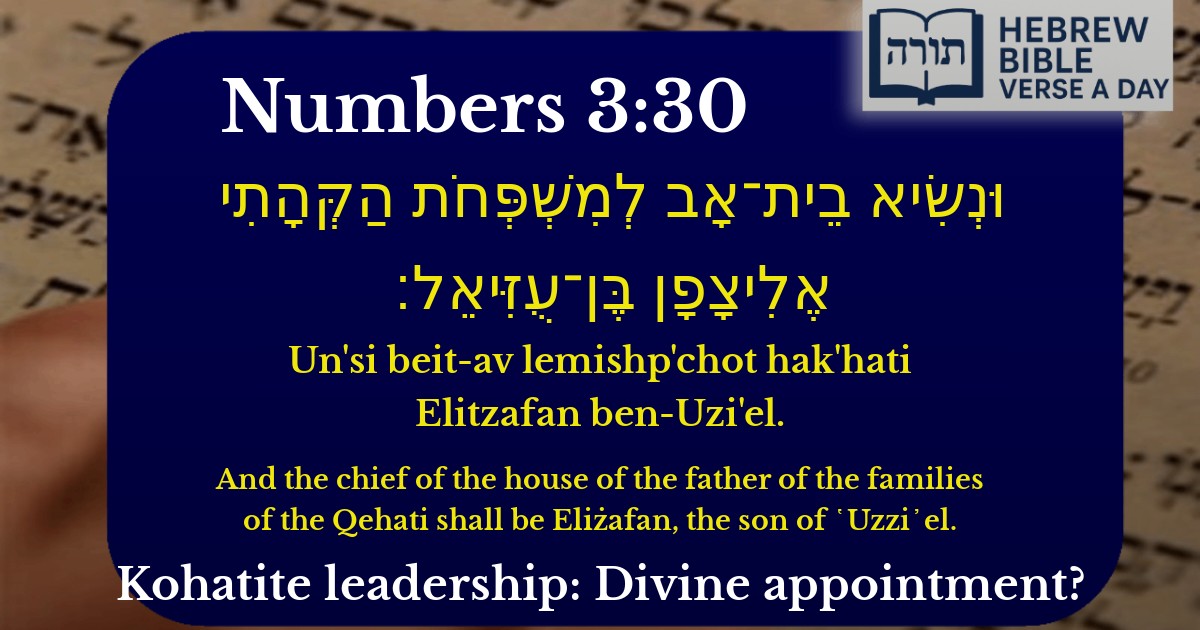Join Our Newsletter To Be Informed When New Videos Are Posted
Join the thousands of fellow Studends who rely on our videos to learn how to read the bible in Hebrew for free!
Hebrew Text
וּנְשִׂיא בֵית־אָב לְמִשְׁפְּחֹת הַקְּהָתִי אֶלִיצָפָן בֶּן־עֻזִּיאֵל׃
English Translation
And the chief of the house of the father of the families of the Qehati shall be Eliżafan, the son of ῾Uzzi᾽el.
Transliteration
Un'si beit-av lemishp'chot hak'hati Elitzafan ben-Uzi'el.
Hebrew Leining Text
וּנְשִׂ֥יא בֵֽית־אָ֖ב לְמִשְׁפְּחֹ֣ת הַקְּהָתִ֑י אֱלִיצָפָ֖ן בֶּן־עֻזִּיאֵֽל׃
וּנְשִׂ֥יא בֵֽית־אָ֖ב לְמִשְׁפְּחֹ֣ת הַקְּהָתִ֑י אֱלִיצָפָ֖ן בֶּן־עֻזִּיאֵֽל׃
🎵 Listen to leining
Parasha Commentary
📚 Talmud Citations
This verse is not quoted in the Talmud.


Context in the Torah
The verse (Bamidbar 3:30) discusses the leadership structure of the Kehati families within the tribe of Levi. Kehat was one of Levi's three sons, and his descendants were entrusted with carrying the most sacred vessels of the Mishkan (Tabernacle). Elitzafan ben Uziel is appointed as their leader.
Rashi's Commentary
Rashi explains that Elitzafan was chosen despite being the son of Uziel, who was the youngest of Kehat's sons (Shemot 6:22). Ordinarily, leadership would pass to the eldest son's descendants, but here, Hashem selected Elitzafan based on merit. Rashi cites the Midrash (Bamidbar Rabbah 6:6) that this teaches us leadership is not inherited automatically but granted to the worthy.
Rambam on Leadership
Rambam (Hilchot Klei HaMikdash 3:8) emphasizes that positions of sanctity, such as overseeing the Mishkan's vessels, must be filled by individuals of exceptional piety and wisdom. Elitzafan's appointment reflects the principle that spiritual roles require divine approval, not just lineage.
Midrashic Insights
Halachic Significance
The Gemara (Yoma 72b) derives from this verse that those who handle sacred objects (like the Aron) must be appointed formally, not merely by default. This principle extends to later halachic roles, such as synagogue gabaim or Torah scribes.